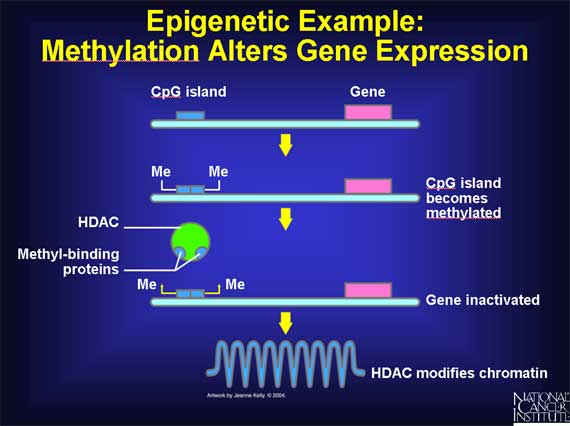|
Methylation of the genome can render areas silent. There are two types of methylation that occur. Maintenance methylation adds methyl groups to newly synthesized strands of DNA at spots opposite methylated sites on the parent strand. This activity makes sure that daughter molecules of DNA maintain a methylation pattern after cell division. There is also de novo methylation, which can add methyl groups to totally new positions and change the pattern in a localized region of the genome.
Genes that must be expressed in all tissues have unmethylated regions, called CpG islands, located upstream. On the other hand, genes that must be turned off in differentiated tissues have these islands methylated. This allows a histone deacetylase complex nicknamed HDAC to bind, compress the shape of the genomic material, and inactivate the gene.

< Previous | Index | Next Slide > |